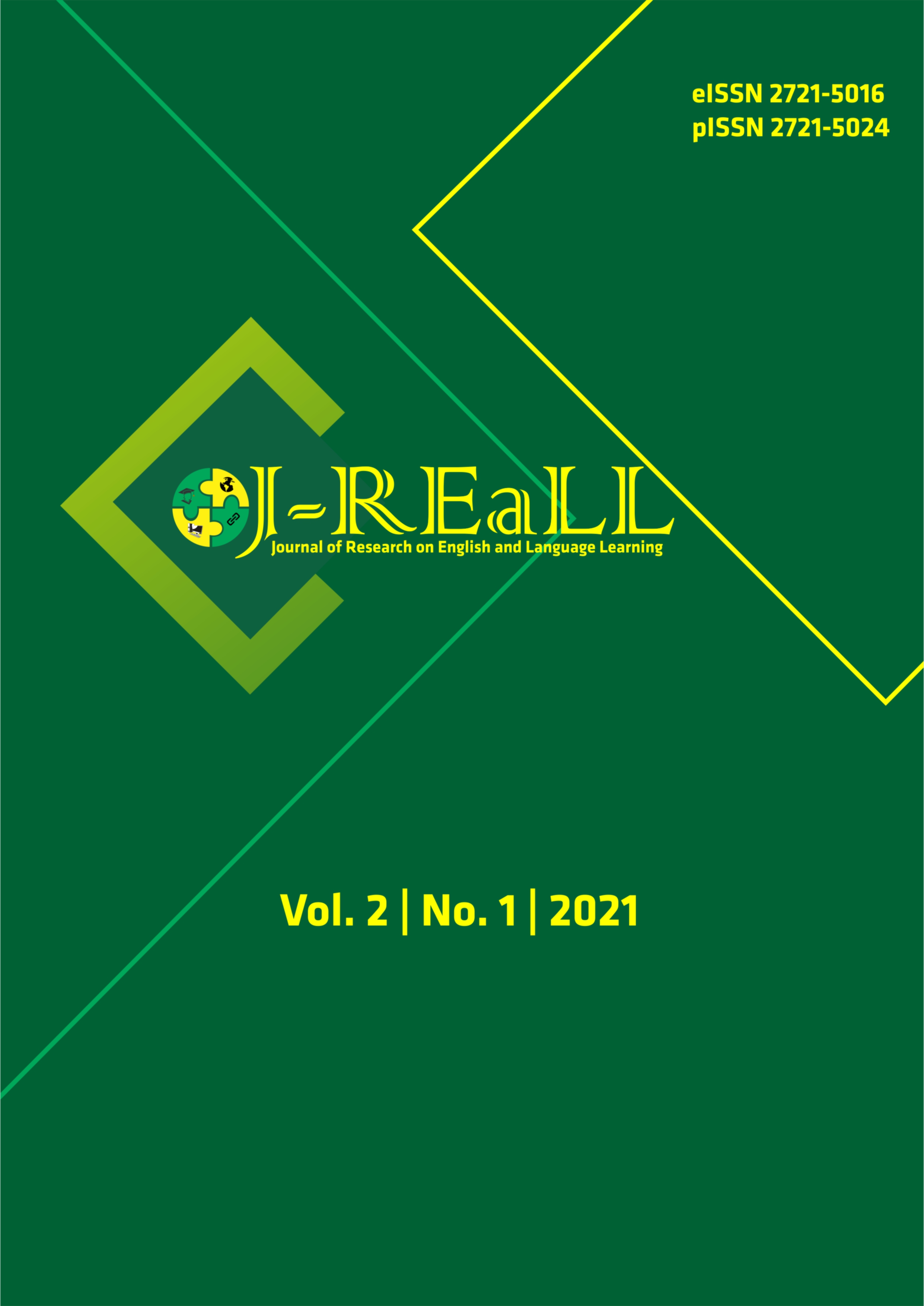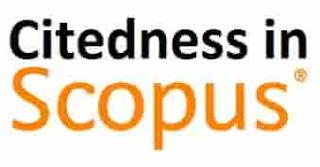The elimination of anticipated written errors from L1 interference through flipped classrooms
DOI:
https://doi.org/10.33474/j-reall.v2i1.9524Keywords:
written errors, L1 interference, flipped classroomAbstract
Several studies have been conducted on written errors discovered in an EFL classroom, and the findings are similar, and that common errors have been discovered in Thai students' written work, so these studies conclude that the main cause of errors is L1 interference. In addition, other related studies reveal that flipped classrooms can support students' learning process. It is due to the fact that these days, EFL students still have problems with some grammatical aspects due to their mother tongue, and the class time provided is limited. Therefore, to ascertain that the flipped classroom can help eliminate the anticipated grammatical problems repeatedly in class; the study looks to develop online lessons on LMS to encourage the students to learn at their own pace and to engage students with class activities. The online lessons and class activities are currently being implemented, and 25 freshmen participate in this study. The questionnaire will be completed at the end of the semester to discover their attitudes towards the flipped classroom covering online lessons and class activities. Also, a pre-test and post-test on simple sentences are used to investigate the students' learning outcomes via the flipped classroom. The findings from the pre- and post-tests confirm the results of the former studies that the students produce the anticipated errors such as articles, capitalization, punctuation, nouns, and subject-verb agreement. Also, synchronous and asynchronous learning can help eliminate those mentioned errors and the students have positive attitudes towards the flipped classroom.
References
Bennui, Pairote. (2008). A Study of L1 Intereference In the Writing of Thai EFL Students. Malaysian Journal of ELT Research, 4, 72-102
Kaewwichian, D. and Jaturapitakkul, N. (2018). Self-Perception of English Proficiency of Thai Lower Secondary EFL Teachers. rEFLections, 25, 21-41.
Kanchai, Thebporn. (2019). Thai EFL University Lecturers' Viewpoints towards Impacts of the CEFR on their English Language Curricula and Teaching Practice. NIDA Journal of Language and Communication, 24 (35), 23-47.
Peachey, Nik. (2020). The Flipped Classroom for English Language Teaching. Retrieved September 15, 2020, from https://elt.oup.com/elt/teachers/generalcontent/focus-papers/oup-focus-flipped-classroom.pdf?cc=th&selLanguage=th&mode=hub.
Prapawadee, Napacha. (2005). The Effects of Formal and Conversational Thai Explanations in Grammatical Computer-Assisted Language Learning (CALL) Packages on Students' Attitudes and Learning Outcomes. (Unpublished master thesis). Prince of Songkla University, Hat Yai Campus, Songkhla, Thailand.
Richards, Jack and Schmidt, Richard. (2010). Longman Dictionary of Language Teaching and Applied Linguistics. Malaysia: Pearson Education.
Roongsitthichai, Atthaporn et al. (2019). Error Analysis in English Abstracts Written by Veterinary Students in Northeast Thailand. Chophayom Journal, 30(3), 21-30.
Sitsungnern, Chonnasit. (2017). Flipped Classroom: Learning Skill in Century 21st. Journal of MCU Social Science Review. 6(2), 171-182.
Sittirak, Nantana. (2015). Grammar-Translation Method in an EFL Class in Thailand: A Glance at an English Song's Lyrics. Journal of Education Thaksin University, 15(2), 30-47.
Srichailard, Uraiwan and Srichailard, Panuwat. (2019). The Development of a Flipped Classroom Teaching Model Using Think-pair-share and Project-based Learning. Journal of Industrial Education, 18(1), 50-58.
Thaichay, Thanachok and Sitthitikul, Pragasit. (2010). Effects of the Flipped Classroom Instruction on Language Accuracy and Learning Environment: A Case Study of Thai EFL Upper-Secondary School Students. Rangsit Journal of Educational Studies, 3(2), 35-64.
Thai English skills dip for third year. (2019, November). Retrieved September 15, 2020, from
http://www.en.moe.go.th/enMoe2017/index.php/articles/488-thai-english-skills-dip-for-third-year.
Waluyo, Budi. (2019). Examining Thai First-Year University Students' English Proficiency on CEFR Levels. The New English Teacher, 13 (2), 51-71.
Downloads
Published
How to Cite
Issue
Section
License
Copyright (c) 2021 Napacha Prapawadee

This work is licensed under a Creative Commons Attribution 4.0 International License.
Authors who publish this journal agree to the following terms:
- Authors retain copyright and grant the journal right of first publication with the work simultaneously licensed under a Creative Commons Attribution License that allows others to share the work with an acknowledgement of the work's authorship and initial publication in this journal.
- Authors can separately make additional contractual arrangements for non-exclusive distribution published by the journal (e.g., publish it in a book), with an acknowledgement of its initial publication in this journal.
- Authors are allowed and encouraged to send their work via online (e.g., in the institutional repositories or their website) after published by the journal.





















